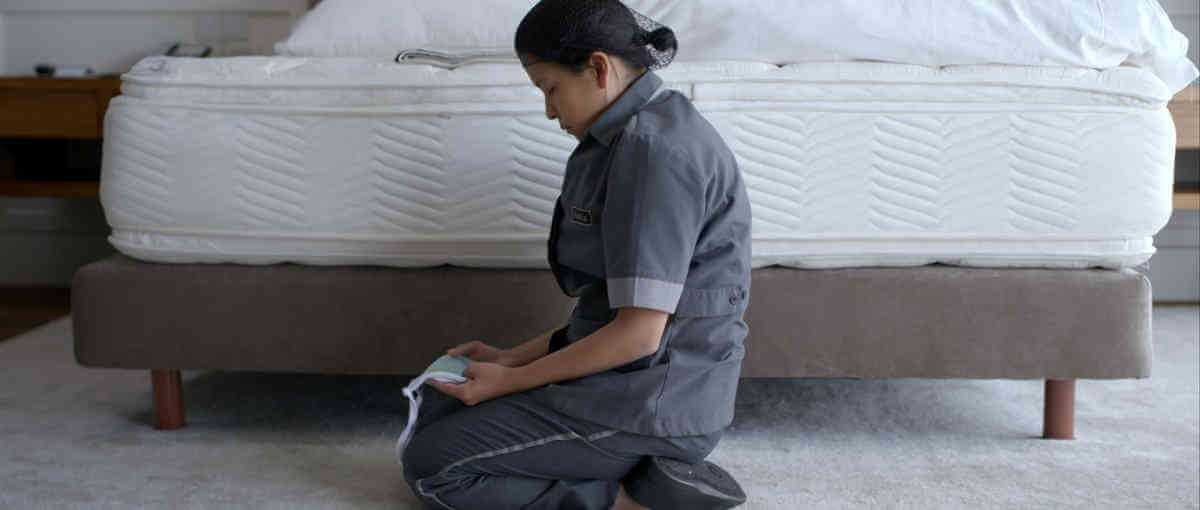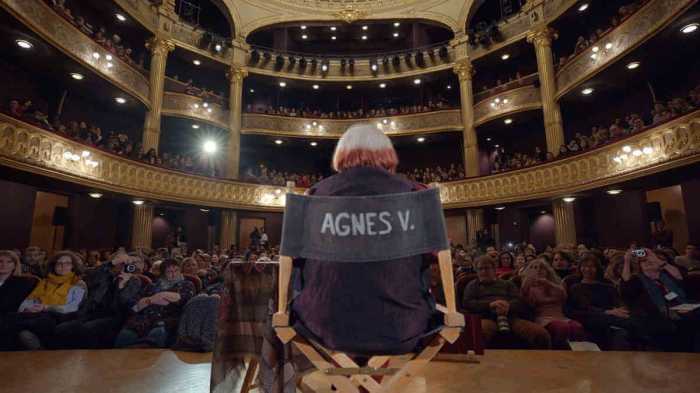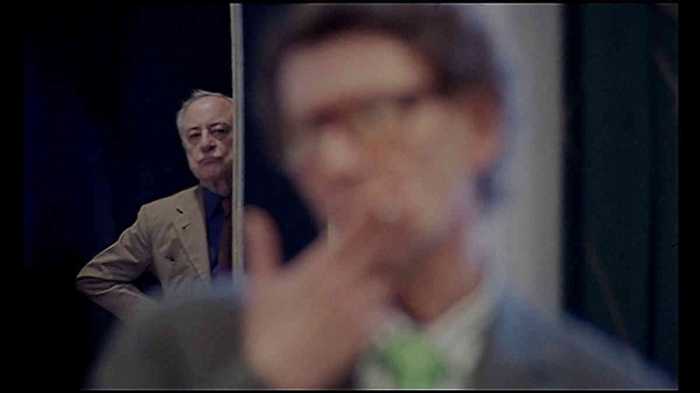The hotel where Mexican director Lila Avilés’ “The Chambermaid” takes place is shot as if it had no exit. Although the film’s title character, Eve (Gabriela Cartol), works there willingly, Avilés makes some choices that emphasize her confinement. There are almost no exteriors. Eve is constantly separated from the outside world by windows or doors. Her flirtation with a window-washer is mediated via frustration and voyeurism; in a scene near the end, she takes off her clothes slowly as he perches just outside the room where she lies on a bed.
Eve works at one of Mexico City’s most luxurious hotels. The mother of a very young son, her hours prevent her from taking care of him. She finds her work a drag but thinks her life will improve if she can get a promotion to the executive suites. While she cleans hotel rooms that cost several hundred American dollars a night, her own apartment doesn’t even have a shower. She takes classes in the hotel’s education program and becomes friends with an older co-worker, Minitoy (Teresa Sánchez). But the frustrations of her job pile up, and it becomes apparent that there’s nothing positive to be gained from trying to get ahead there.
“The Chambermaid” brings up a few reference points. The tracking shots of Eve in motion, which show her from the back, evoke the Dardenne brothers. The concept of basing a film around a woman’s tasks like cleaning rooms owes something to Chantal Akerman’s “Jeanne Dielman,” although there’s a major difference that Eve is getting paid for her labor while Dielman is a homemaker doing unpaid work on behalf of men (and sex work as well). Like Akerman, Avilés is interested in the details of work that cinema usually goes out of its way to avoid. “The Chambermaid” devotes time to showing Eve’s daily rounds before establishing much else about her life. However, Avilés cites an influence outside cinema: French artist Sophie Calle’s book “L’ hôtel.” Calle took a job as a hotel maid in Venice and photographed the objects left behind by its guests, as well as their clothing. Even if Cartol is a professional actress playing a fictional role, the film has a documentary dimension, with some of the plot based directly around the stories of maids Avilés met researching the script.
“The Chambermaid” originated as a play, based on extensive research about maids’ lives. Avilés’ background lies in acting and directing theater and opera. This is her first film. However, its cinematography is crucial to its accomplishments. Avilés’ approach to character goes hand in hand with her visual style: no fake intimacy or assumptions that she knows everything about Eve’s life. There are plenty of long shots taken from a still camera, as well as a use of shallow focus that blurs part of the frame. The hotel setting looks so sterile and unwelcoming that the sight of menstrual blood on a pristine white sheet is jarring. Frequent images of Eve riding in elevators offer a metaphor for the class and employment mobility she’s denied. The choice of Cinemascope gives her grind an epic dimension.
Eve’s libido and emotional life are shown. But “The Chambermaid” de-emphasizes dialogue and obvious markers of acting. Meaningful concepts are snatched out of the air, out of context: one guest’s TV is playing a news program whose guest says that all economic systems have collapsed into one; her class discusses “How is the border patrol related to the humanities?” These moments have a political resonance, but no obvious message. “The Chambermaid” stays away from a facile, conservative version of humanism, where a filmmaker serves up poor people’s lives for a middle-class arthouse audience to pity. It respects Eve’s introversion, allowing her odd behavioral tics.
At 100 minutes, “The Chambermaid” is slowly paced and feels longer than it actually is. But its drama picks up in the final third. If it starts out content to observe Eve’s life, it builds an increasingly urgent narrative out of it. If it doesn’t draw any larger conclusions about working-class life beyond “dead-end jobs are a drag,” it has the optimism to let Eve imagine a better life for herself and try her best to figure out a path to it.
THE CHAMBERMAID | Directed by Lila Avilés | Kino Lorber | In Spanish with English subtitles | Opens Jun. 26 | Film Forum, 209 W. Houston St..; filmforum.org



































